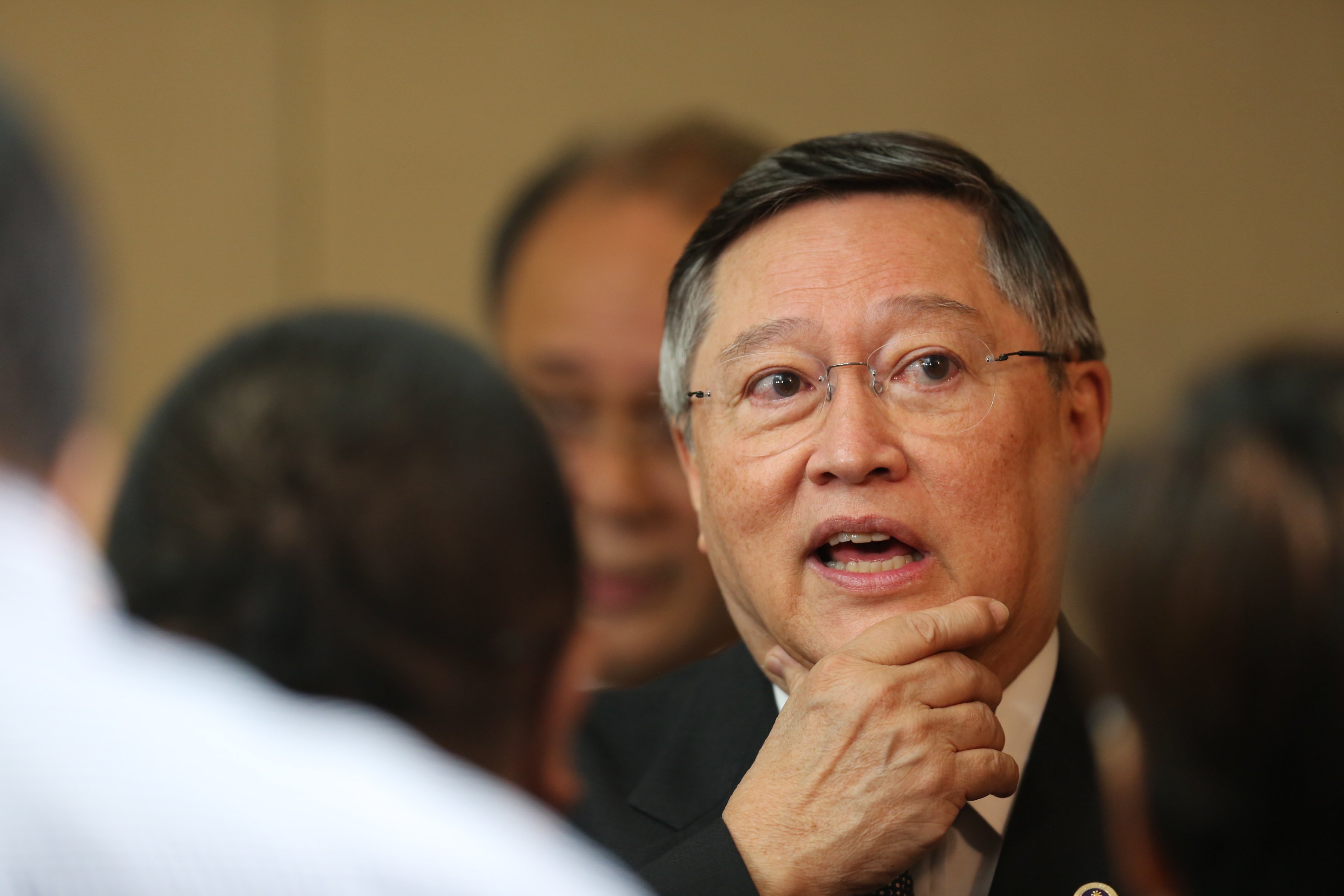
Finance Secretary Carlos G. Dominguez III. MALACANANG FILE PHOTO
MANILA, Philippines — Taxing the wealthiest more, as proposed by militant legislators, could stop the creation of wealth which the proposed measure intended to gain from, President Rodrigo Duterte’s chief economic manager said Monday.
Finance Secretary Carlos Dominguez III said the Department of Finance (DOF) will study the Makabayan bloc’s House Bill (HB) No. 10253, which aims to collect wealth taxes of 1-3 percent from billionaires in the country who have taxable assets of over P1 billion.
The progressive legislators filed the proposed measure on Monday at the House of Representatives.
“But my initial comment is that a wealth tax will drive capital out of the Philippines,” Dominguez said.
Under the Tax Reform for Acceleration and Inclusion (TRAIN) Act, the so-called “ultra-rich” earning P8 million a year were already being slapped with the highest tax rate, which included a basic amount of P2.41 million plus an additional rate of 35 percent of the excess over P8 million.
Back in January, Albay Rep. Joey Salceda told the Inquirer that taxes on wealth-creation to recoup massive pandemic-induced revenue losses may have to be more “creative” to not become a burden amid the prolonged pandemic.
Salceda, who chairs the House ways and means committee, had pointed to some challenges in imposing wealth tax — for instance: “Not all wealth is liquid. In theory, realized wealth is taxed by the capital gains tax, but in very unequal societies, the wealthy do not even need to liquidate their big shares of their wealth.”
Jim Brumby, a senior governance adviser at the Washington-based World Bank, said in a January 6 blog that “if ever there were a time that wealth taxes could help, it may be now” even as he noted most countries had been “extremely hesitant” to introduce these levies.
Brumby had said taxing wealth will address five global disruptions, namely: “out-of-hand” inequality; a global fiscal “hole” as the pandemic pushed countries to massive debt; a stock market that had “gone into a frenzy for stocks that offer a dependable and growing revenue bundle” or so-called “rundles”; difficulty now for the “super-rich” to hide their money in tax havens; and a “fraying” social fabric.
“Now is the time to consider a wealth tax. It can support fairness and deliver serious recurring revenue. This can help close the inequality gap, plug the fiscal hole and win back trust. According to forthcoming work at the World Bank, taxpayer compliance is bolstered by rebuilding trust; and an important element of that trust comes from the sense that taxes are fair,” Brumby had said.
“Rather than seeing the resolution of the impending public finance crisis as a problem where ‘something’s gotta give’, an annualized wealth tax provides a way to meet at least a part of the problem through ‘someone’s gonna give,” according to Brumby.